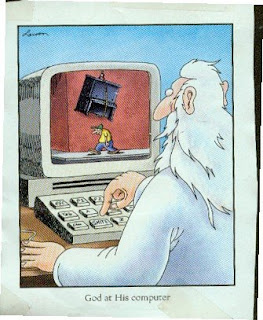Not a lot of time to post this week... I just started a full-time job and my marriage is two months old, so I'm busy. But I thought I'd link to this article and leave a quick comment. I have a big-time post series coming up sometime soon, the kind of ideas that (for me) are faith-changing. Many of you (the three people reading this) have probably heard of Todd Bentley and the enormous "revival" happening in Lakeland. Bentley has stepped down and his marriage is possibly ending. The change in opinion from the author of the above article is amazing. This pentecostal was convinced Todd Bentley was healing hundreds and then thinking it's all fake because of marriage problems.
Many of you (the three people reading this) have probably heard of Todd Bentley and the enormous "revival" happening in Lakeland. Bentley has stepped down and his marriage is possibly ending. The change in opinion from the author of the above article is amazing. This pentecostal was convinced Todd Bentley was healing hundreds and then thinking it's all fake because of marriage problems.
What were you thinking before, J. Lee Grady? Everyone has personal problems; a broken marriage doesn't make Bentley's ministry a fake. There are plenty of other reasons.
Now, let me make this clear: Bentley's or anyone else's worship down there in Florida is no less legit than mine. Our worship pleases God by his grace, not by our attitude or orderliness or emotions or level of perfection of theology.
On the other hand, the reason Christians were buying into the healings was admitted freely and insightfully stated by J. Lee Grady: "We're just plain gullible."
I suppose it's just human nature to trust something that matches your ideology without thinking critically about it. But I have to admit I am amazed again and again the extent this is true for charismatic-minded believers. Some thoughts:
- The format of these "healings" were just silly. People would come up on stage, either claim to be healed or ask to be healed for this or that, Bentley would interrupt them mid-sentence and push them over, they'd be dragged off stage and you'd never see them again. Not exactly in view for all to examine.
- The "revival" really didn't demonstrate many people at all moving from "skeptical" about movements of the Spirit to "believers." Indeed most everyone who went down there was charismatic before they heard about it. The reason it was larger than the past was new MARKETING: internet marketing and broadcasts, specifically.
- The day that someone performs 1000s of legit healings in a couple months time, there will not be tens of thousands or hundreds of thousands showing up. There will be MILLIONS. Millions and millions and millions. All the healings will not fade away into unverifiability within a week. They will be touring the talk show circuit, all over the newspapers, etc. The "secular media" will not be able to keep it under wraps but will have to embrace it. If this really happens, everyone will hear.

- Just because something appears, on the surface, to be a "healing" doesn't mean crap. Lots of things are hard to explain or appear miraculous that aren't. Think magic tricks.
I certainly believe God is capable and willing to do incredible, unexplainable things here and now. But I think, as Christians, it is imperative that we think critically and skeptically to separate what God's doing from what we're making up.
As for those eager for a new movement of the Spirit to overcome our world, I recommend reading this post.











